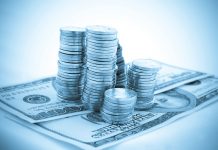The second half is looking promising
The governor of the Bank of Thailand, Prasarn Trairatvorakul, was recently quoted as saying he believes the second half of this year will prove more economically stable. The governor issued a word or two of caution among the optimism, saying that while the economic numbers he was seeing indicated a solid recovery, the positive results would not be seen until 2015.
In basic terms, the economy showed good signs of stability in April and May and the governor noted that consumer confidence had improved over that time and had continued to grow following the 22 May coup. The military takeover has led to fiscal spending getting back to normal, which means that the public spending sector of the economy will begin to have its intended impact on the overall bottom line.
Admittedly, fiscal policy disbursements do not begin until October, so the real drive forward in the public sector will not be felt until next year.
The governor has noted that exports are not the main driver of growth for 2014, partially due to overall slow economic recovery throughout the world. Nonetheless, Khun Prasarn said this will not inhibit Thailand’s long-term growth.
Although consumer confidence has risen, the governor suggests domestic consumption will not be much stronger because purchasing power has been retarded by the record levels of household debt.
The factors which are expected to support an economic recovery include the Bank of Thailand’s relaxed monetary policy, the strong liquidity within the financial system and the strength of the financial institutions in the country.
At present, foreign investment flows are still incoming, much of it directed at the Stock Exchange of Thailand (SET). As well, the bond market had not seen any significant outflows of capital, although this sector is often driven by the machinery of US Federal Reserve monetary policy rather than anything specific to Thailand.
Elsewhere, a senior economist with the Asian Development Bank (ADB), has noted a clear upswing in consumer confidence since the military takeover and it is maintaining a 2.9 percent growth forecast for the Thai economy for 2014.
Kasikornbank’s head of capital market research said the weakening of the baht may well prove a key factor in helping drive the Thai economy for the remainder of 2014. A weaker baht will help stimulate export growth. The Bank of Thailand believes the baht will be at around 33.50 to the US dollar by the end of the year. It also revised its export growth forecast to 3.5 percent, a significant 1.5 percentage drop from its thoughts at the beginning of 2014.
Kasikornbank believes the focus of the military government at present is on economic reform and restructuring rather than economic stimulus and also feels rising inflationary pressures will restrict any easing of monetary policy by the central bank.








